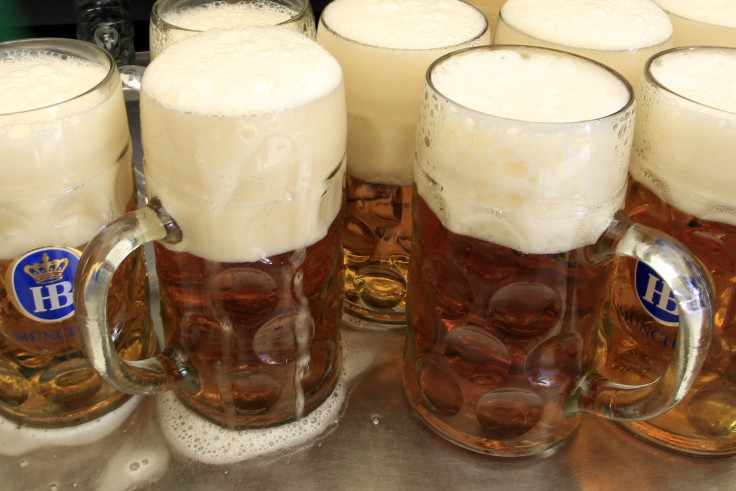Major Beer Innovation Promised By Anheuser-Busch InBev NV (ABI), From Super Bowl 2014 Onwards

Anheuser Busch InBev SA (EBR:ABI), the world’s largest brewer with 20 percent global market share and the most revenues, is promising significant beer innovations next year, with the first changes coming at the 2014 Super Bowl.
The CEO of the company, which saw $39.7 billion in revenue in 2012, told analysts on a conference call about third-quarter earnings that changes would emerge in less than three months.
“The pipeline remains very strong,” said Carlos Alves de Brito, adding that the company's beers, packaging and marketing would be subject to changes.
In its latest third quarter, the company launched two innovations. It offered a 25-ounce can, unique among beer sellers, for the same price as most 24-ounce cans, alongside a resealable 16-ounce aluminum bottle. Bank analysts with UBS AG (VTX:UBSN) wrote that the 25-ounce can sells well in convenience stores.
“Much of this innovation is around the Bud Light family – getting this back into growth is management’s strategic priority,” they wrote in a research note Friday.
The Belgian company, whose American Depositary Receipts trade on the New York Stock Exchange under the ticker "BUD," will also release the Bud Light Lime Cran-Brrr-Rita in the U.S. in November, after company executives boasted about the similar Straw-Ber-Rita as a top-selling innovation in the beer industry this year.
Anheuser-Busch sells Budweiser, Bud Light, Stella Artois and Beck’s, and in 2013 it bought Corona seller Modelo for $20.1 billion. The company dominates beer markets in the U.S., Brazil and Mexico.
In its third-quarter earnings, the beer giant reported lower beer sales in all its markets except China, and added that it was unhappy with its topline sales in 2013.
In the U.S., drinkers have increasingly switched away from beers toward wine and spirits. Third-quarter earnings from spirits companies, which sell whiskies and vodkas, have so far “highlighted generally solid trends in the U.S.,” wrote UBS analysts in a separate note earlier this week.
UBS analysts also wrote, however, that unemployment among core beer drinkers, who include men aged 20-34, and especially black and Hispanic men, remained relatively high, which could affect the company’s future sales.
© Copyright IBTimes 2024. All rights reserved.












